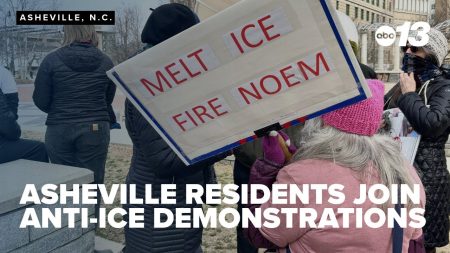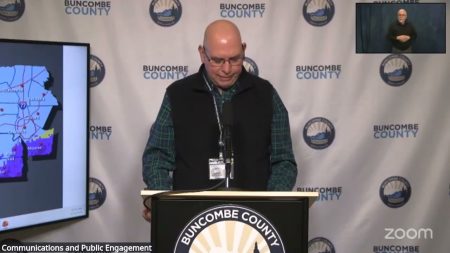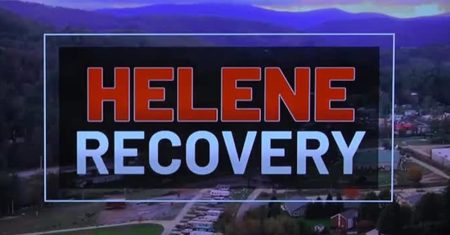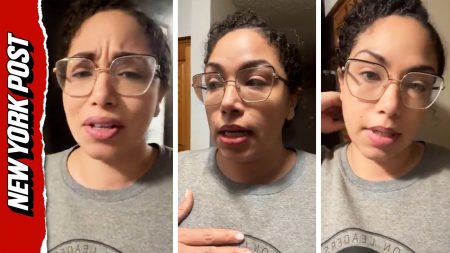Building Healing and Resilience in Asheville After Hurricane Helene
In fall 2024, Hurricane Helene swept through western North Carolina, leaving behind heavy damage, flooding, and loss of life.
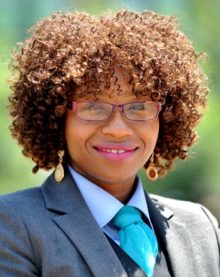
Communities in Buncombe County, including Asheville, were especially hard hit.
For Black communities already facing inequities, the storm deepened existing struggles. In the middle of this crisis, leaders and organizations came together to create healing spaces and practical support for recovery.
Dr. Annelle Primm, convenor of the All Healers Mental Health Alliance (AHMHA), and Dr. Atyia Martin, executive director of Next Leadership Development and convener of the Black Resilience Network (BRN), reached out to Black women leaders in Asheville. Their goal was simple but powerful: to make sure the needs of Black communities in Asheville were not ignored during recovery.
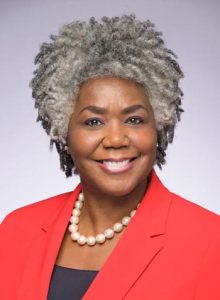
Who We Are
AHMHA was created in 2005 after Hurricane Katrina. That storm showed how easily the needs of Black communities and other underserved groups could be overlooked in disaster recovery. AHMHA was formed to change that. Since then, it has worked to provide culturally relevant mental health support in communities hit by natural and human-made disasters.
AHMHA is a founding member of BRN, sharing the same vision. It was founded in 2022 and formally launched at the White House in 2023. BRN is designed to support disaster response and long-term recovery in Black communities across the country. It builds connections between local leaders, community groups, and national partners. BRN currently has active work in California, Illinois, Mississippi, Missouri, and North Carolina. Together, AHMHA and BRN aim to ensure that disaster recovery is community led, coordinated, and centered on justice.
Connecting in Asheville
Connections made through North Carolina A&T alumnae Phyllis Cunningham-Boykin and Monya Lindsey helped AHMHA and BRN link with two Asheville leaders: historian Priscilla Ndiaye Robinson and Johnnie Grant, publisher of The Urban News. Both women are respected community anchors with deep ties across Asheville’s Black community.
Just as Hurricane Helene struck, Dr. Vivian Campbell, a psychiatrist from Charlotte and member of the AHMHA network, happened to be in Asheville for a conference. She quickly stepped in to help. Dr. Campbell led an educational session at a local AME church. She explained the emotional and mental health impacts of disasters and offered strategies for resilience. The session gave people not only information but also comfort in a moment of uncertainty.
After the church session, Robinson and Grant invited women in their networks to join a new virtual space for support. This became the Asheville Women’s Support Group, launched with the help of AHMHA and BRN. The group’s purpose was to give women a safe and affirming space to share their stories, grieve together, and find resources after the storm.
A Space for Healing and Action
The Asheville Women’s Support Group officially began in October 2024, only weeks after the hurricane. The group meets twice a month on Tuesday evenings. Meetings are warm, welcoming, and designed to help women feel that they belong.
Since its start, the group has held almost 20 sessions. On average, about 11 women attend each one. The largest gathering welcomed 35 participants—a sign of the growing trust and relevance of the group.
At each meeting, women share their experiences, talk about challenges, and exchange information. The group has become a hub of both emotional support and practical resources.
Some of the group’s activities include:
- Inviting FEMA and Small Business Administration staff to answer questions about recovery programs.
- Advocating for an extension of the FEMA Individual Assistance application deadline, which was later granted.
- Sharing recovery information that was later published in the Urban News.
- Raising concerns about health risks, such as piles of trash and rodent infestations after the storm.
- Discussing advocacy strategies to push for safer, cleaner conditions.
Helping Families Stay Housed
Beyond information sharing, the support group has directly helped families in need. During one meeting, social worker Jasmine Moore described families with young children who faced eviction. Their homes had been damaged, and many parents had lost jobs or income because of the hurricane.
Through BRN’s connections, the group invited Cassandra Campbell, director of the Robeson County Disaster Recovery Coalition and board member of the North Carolina Voluntary Organizations Active in Disasters (NCVOAD). When Campbell heard about the Asheville families, she was able to provide emergency funds that helped them stay in their homes.
Other partnerships also made a difference. For example, Unity in Disasters, Inc., a group based in Tampa, Florida, provided gift cards to 15 families in Asheville. These cards helped cover urgent needs such as food and supplies. This support came through AHMHA and BRN’s long relationship with Unity in Disasters leader Joe Gilliom, who has partnered with them in past disasters.
Honoring Community Strengths
One of the most meaningful aspects of the Asheville Women’s Support Group has been the sharing of talents and ongoing community work. These updates remind members that healing also happens through action and connection. This is why BRN often says, “The healing is in the doing.”
Some examples include:
- Olympia Garrett speaks about her healing services, health outreach, and annual community events.
- Shuvonda Harper shares news about the Southside Community Farm which was even featured on Good Morning, America for feeding community members healthy food.
- Alice Jones updates the group on the programs at her church, where she serves as secretary.
- Jasmine Moore reports on her disaster case management work, her role on Asheville’s Long-Term Disaster Recovery Committee, and her equine therapy practice.
- Priscilla Ndiaye Robinson highlights her research on the history of Asheville’s Black community and the impacts of displacement.
- Inez Whiteside talks about preserving her mother’s historic home in Asheville.
- Betty Young describes preparing delicious charcuterie boards and other special treats for community events.
Each story not only strengthens the group but also showcases the creativity and resilience already alive in Asheville.
Coping With Loss
While the group celebrates strengths, it also makes space for grief. Members have spoken about losing loved ones in the storm, the destruction of homes and familiar places, and even the loss of Asheville’s natural beauty. Coping with changes to the landscape is part of the grieving process after such a large disaster. Talking about these losses together has helped participants begin to heal.
Looking Ahead
The Asheville Women’s Support Group is not only about the present—it is also building for the future. With support from the American Baptist Home Mission Societies, AHMHA and BRN secured funding to continue the group and to plan a larger community event.
This event, expected in spring 2026, will be guided by Asheville women. It will celebrate the resilience of the Black community and lay the groundwork for a Black Resilience Network Community Hub—a trusted network of leaders and organizations collaborating to support the community to prepare for, respond to, and recover from disasters. The event will focus on three main areas that matter most for long-term resilience before and after disasters:
- Health – supporting emotional, physical, and community wellness.
- Wealth – securing resources and opportunities to build financial security.
- Preservation – protecting cultural heritage, history, and family assets.
Why This Work Matters
Hurricane Helene showed once again that disasters do not affect everyone equally. Black communities, already carrying the weight of economic and social inequities, often face the greatest challenges in recovery. By creating spaces like the Asheville Women’s Support Group, AHMHA and BRN are working to change that pattern.
This work is about more than just recovering from one storm. It is about making sure communities are stronger, healthier, and more prepared for the future. The Asheville Women’s Support Group proves that when women come together, they can build both healing and resilience—not only for themselves but for their entire community.
Organizations Working to Build Healing and Resilience
All Healers Mental Health Alliance – Bringing hope and help in times of all hazards and disaster. For more details, visit allhealersmha.com.
Black Resilience Network – Fostering leadership, collaboration, and investments to combat racism, disasters, and climate change for community resilience. For more details, visit www.blackresiliencenetwork.org.

